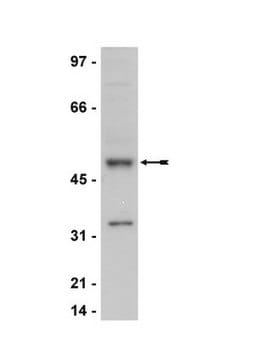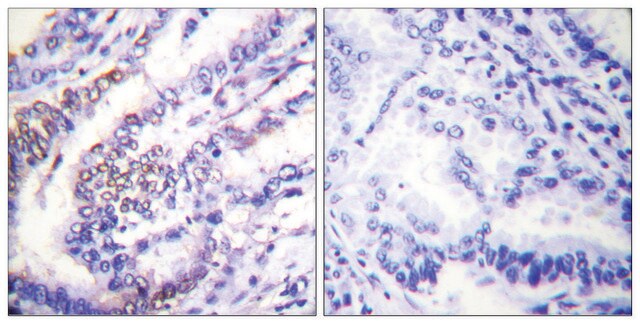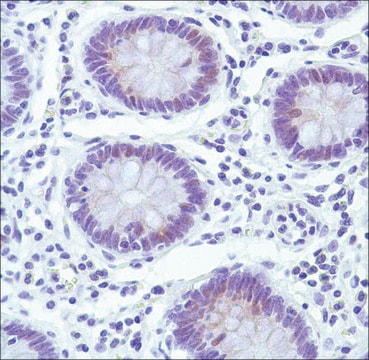05-363
Anti-Cyclin E Antibody, clone HE12
clone HE12, Upstate®, from mouse
Szinonimák:
Anti-CCNE, Anti-pCCNE1
About This Item
IP
WB
immunoprecipitation (IP): suitable
western blot: suitable
Javasolt termékek
biológiai forrás
mouse
Minőségi szint
antitest forma
purified immunoglobulin
antitest terméktípus
primary antibodies
klón
HE12, monoclonal
faj reaktivitás
human
kiszerelés
antibody small pack of 25 μg
gyártó/kereskedő neve
Upstate®
technika/technikák
immunocytochemistry: suitable
immunoprecipitation (IP): suitable
western blot: suitable
izotípus
IgG
UniProt elérési szám
kiszállítva
dry ice
célzott transzláció utáni módosítás
unmodified
Géninformáció
human ... CCNE1(898)
Általános leírás
Egyediség
Immunogén
Alkalmazás
Minőség
Cél megnevezése
Kapcsolódás
Fizikai forma
Tárolás és stabilitás
Analízis megjegyzés
Positive Antigen Control: Catalog #12-301, non-stimulated A431 cell lysate. Add 2.5µL of 2-mercaptoethanol/100µL of lysate and boil for 5 minutes to reduce the preparation. Load 20µg of reduced lysate per lane for minigels.
Jogi információk
Nem találja a megfelelő terméket?
Próbálja ki a Termékválasztó eszköz. eszközt
Tárolási osztály kódja
12 - Non Combustible Liquids
WGK
WGK 1
Lobbanási pont (F)
Not applicable
Lobbanási pont (C)
Not applicable
Analitikai tanúsítványok (COA)
Analitikai tanúsítványok (COA) keresése a termék sarzs-/tételszámának megadásával. A sarzs- és tételszámok a termék címkéjén találhatók, a „Lot” vagy „Batch” szavak után.
Már rendelkezik ezzel a termékkel?
Az Ön által nemrégiben megvásárolt termékekre vonatkozó dokumentumokat a Dokumentumtárban találja.
Tudóscsoportunk valamennyi kutatási területen rendelkezik tapasztalattal, beleértve az élettudományt, az anyagtudományt, a kémiai szintézist, a kromatográfiát, az analitikát és még sok más területet.
Lépjen kapcsolatba a szaktanácsadással








